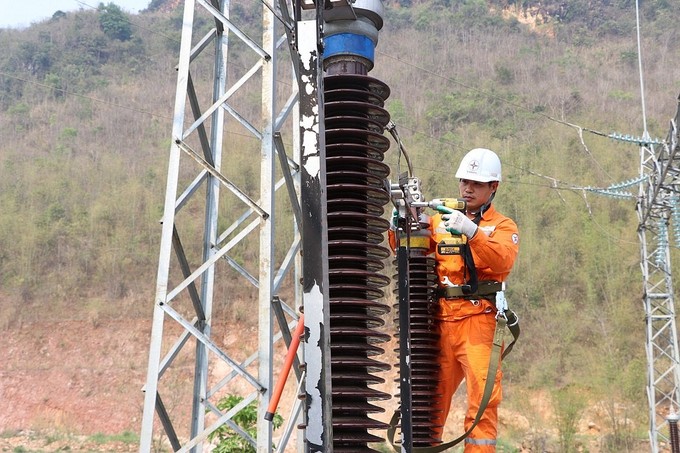
Heat wave sends power consumption to record-high.
According to data from the National Load Dispatch Center, the maximum capacity growth rate (Pmax) of the whole national power system has increased reaching new records for the power system.
Specifically, at 1:30 p.m. on April 27, the national maximum capacity reached 47,670 MW, and the national consumption on April 26 reached 993 million kWh. The old record was 942 million kWh on April 23.
As for the Northern region, because this is just the first severe heat wave, electricity consumption in the North, although higher than before, has not yet reached the peak recorded in the past. Thus, electricity consumption in the North is likely to continue to increase in the upcoming heat waves of this summer.
Anticipating this situation, EVN has proactively prepared many solutions for electricity supply in 2024. With the gradual recovery of the economy, it is forecasted that temperatures will rise and unrelenting heat is still gripping nationwide, so electricity demand grew higher than planned at the beginning of the year.
Therefore, EVN has updated the calculation of the power supply plan and power system operation in 2024 and the power supply plan for the peak months of the dry season (April, May, June, July) of 2024 which has been approved by the Ministry of Industry and Trade.
To be proactive in ensuring power supply for the national power system, especially in the Northern region during the peak months of the dry season in 2024, EVN has been implementing groups of solutions such as optimal operation of the electricity system and electricity market, development of power supply scenarios, update of power production, load demand, and hydrological developments to proactively prepare and adjust power system operation plans.
EVN also directed the optimal mobilization of power sources, combined with increasing maximum transmission from the Central region to the North and regulating water levels of hydroelectric reservoirs to supply electricity for the dry season in 2024.
According to EVN, power generation corporations and power plants will continue to coordinate closely with the Vietnam Oil and Gas Group, the Vietnam Coal and Mineral Group, the Dong Bac Coal Corporation and investors of other power sources to guarantee fuel supply for electricity production.
In the context of dwindling domestic gas resources, EVN has coordinated with the Vietnam Gas Corporation (PVGas) to supply LNG to Phu My 3 Power Plant which was transferred to EVN.
To meet the electricity supply requirements for the North, power corporations planned to mobilize additional diesel sources borrowed from customers to supplement power sources for the national power system in emergency situations.
EVN has also directed the National Power Transmission Corporation to operate the power grid system while proactively detecting and preventing possible problems.
Along with that, the units were directed to promote negotiations to increase electricity imports from neighboring countries, including continuing negotiations with partners in Laos to increase electricity imports to Vietnam through the Nghe An and Quang Tri provinces.
To proactively ensure long-term power supply plans for 2024 and the following years, EVN said it will drastically implement tasks and investment solutions to build projects in accordance with the Prime Minister's directions to ensure the progress of key power source and grid projects, including the expanded Ialy Hydropower Plant project by the end of 2024, the expanded Hoa Binh Hydropower Plant project (2025), Quang Trach I Thermal Power Plant (2026). In addition, according to the plan, by the end of 2024, construction of the expanded Tri An Hydropower Plant project and Bac Ai Pumped Storage Hydropower Plant projects will continue being carried out.
Regarding power transmission grid infrastructure, EVN is focusing all resources to accelerate the implementation of three-circuited 500 kV line projects from Quang Trach to Pho Noi and the power transmission projects from Laos so that the line can be put into use before June 30 for enough electricity supply to the North.
In addition to technical solutions, EVN representatives said that electricity-saving solutions must always be given top priority and are an important solution to ensure adaptation to the risk of electricity shortages in hot seasons for sustainable socio-economic development.